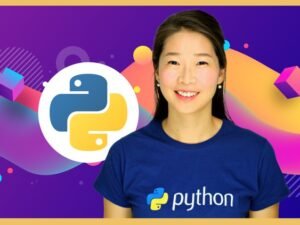Java from Zero to First Job, Practical Guide, 2000+ examples
- Description
- Curriculum
- FAQ
- Reviews
Welcome to the fundamental and the most complete course ‘Java from Zero to First Job’. As it’s declared in the course name, it’s created for people who want to learn programming from scratch. You need to know how to turn on your computer, no other knowledge is required for this course 🙂 The rest will be covered in lessons.
Just read some reviews to learn what other people say about the course:
Vinit:
“I am senior Java developer having 10+ years of experience. I have role to train new Folks for java. I have enrolled in 20+ courses in Java for different authors to check what is the best content available on Udemy but the way u have explained the concepts and provided homework and coding exercises(in test format) is incredibly outstanding. I am 100% sure whoever takes this course, will be able to crack java interviews. Thanks for this hard work which you have put on this course. Cheers!!”
Akram Kozak:
“I can see that he is totally clear in explaining everything and he also cares about his students all the time and never skips the smallest detail about teaching them. Thank you for the course.”
Josua Hamonangan:
“Love this course.. Love with the visualization, it makes it simplier to understand.. THANKS A LOT”
Emanuele Verrienti:
“Before buying the complete Java course, I finished the previous one for free, so without any second thoughts or doubts I believe that the instructor absolutely deserves 5 full stars for the course he created and the commitment. Moreover the English language used is VERY CLEAR (and I’m italian!) therefore whoever affirms/writes the opposite is clearly in “bad faith” (probably “competition”?! ). So, completing my review, I believe that anyone who wants to learn Java and do it with an updated course should definitely buy this course.”
Denys Malik:
“Great course. It is well-structured and has a big amount of practice. I’ve got a lot of useful info from it. Thank you.”
Eslam Abd El-azize Mohamed Mohamed:
“wow its very cool course”
Kavindu Harshitha:
“Best JAVA course highly recommended Thank you for this course”
Sabrina Maia Quirino:
“Teaches incredibly well, he makes it easy to understand!”
Dayana Pergament:
“The teacher explains every little details. I love learning from him thank you so much for this”
Ishan Kapoor:
“GREAT TEACHER WITH GREAT TEACHING STYLE!!”
And thousands of other reviews and happy students!
Before starting the creation of this course, our team attentively investigated feedbacks for existing courses on the Udemy platform and tried to focus on the feedbacks for the top-rated courses to understand what can be improved in this course and make it, even more, better from the quality standpoint. After analysis, we understand what will help students to learn Java in a more efficient way. In this course:
– High concentration of useful material in each lesson
Sometimes you can notice that watching 5 minutes of our lesson is equivalent to watching other 30 minutes lessons.
This is because time spent for preparation for the lesson (script for the lesson, lesson structure) and video editing (to cut boring pieces of the lesson or time when the program loads) sometimes 10 times as much (sometimes even 20) as the final lesson duration after video editing.
Only your homework and coding exercises including the EXAM task might take approximately 20 hours to implement.
Also, each topic is separated from another. In case some concept will be explained in the next lesson and you don’t need to worry about understanding this in the scope of this lesson – the instructor will make an announcement when a specific topic will be covered.
Go and try it yourself! We will appreciate your feedback.
– Relevant knowledge
After our team investigated other Java courses on Udemy we realized that most of them have nothing in common with real life. The information which is shared there is very old and significantly out of date. For example, the instructor teaches a framework which is not been used already for 15 years. Or instructors do stress on the programming design which is not used anymore at all!
The instructor of this course is a consultant in a top-rated IT outsourcing company and helps to bring cutting-edge solutions in IT for all his clients. Feel free to check the LinkedIn page of the instructor and check skills endorsement. More than 18 thousand people across all over the world (BTW most of them are from the top 100 companies of the world) evaluated the skills of Andrii Piatakha.
With this course, you can be sure that you will spend your time learning the right things from one of the best IT consultants in the world.
– Sequence of lessons
After the years of teaching offline, and based on the feedback of students who are passing online courses we realized how important the sequence of lessons is while teaching Java. The same issue is with the books where information is completely unstructured what makes things even more complex. For example, how students can learn object-oriented programming from the first lesson if they don’t know yet the java syntax basics? Or how a student can implement a home task if he/she doesn’t aware of java methods specifics, or doesn’t know yet how to read program input?
So in this course, you can be sure, that you will not get a home task to implement without having enough information to implement it. The program which is in this course is proven by many students who completed it offline and now work as software engineers in outsourcing companies and as freelancers.
– Interview practice tests
Being an IT consultant in different companies, the tutor of this course was in charge of driving the interview process in companies to make sure, that company selects the best people. That’s why the first interview is always test. In case the test is completed, the candidate is invited to have a conversation. That’s why in this course we want to prepare you to complete tests successfully!
Especially for our students, we prepared tests that could be used to evaluate their knowledge during the interview process.
2 tests. 90 questions each (180 interview tests in total). 120 minutes each.
You can read explanations for answers! That also can help you to learn the material better. Don’t wait, try it now!
– Q&A support
The significant difference between the online and offline learning processes is the instructor’s availability. If you are in one room with a tutor he always can help you to get understand the specific concepts or to help fix your code on your computer.
In this course, we are supporting students with answers to any questions flagged in the Q&A section. In case there will be recurring questions – separate video lessons will be created to show how to address the issue.
So with this course you are not just getting video materials, code exercises, source code, access to the free mobile application without limits (which is still pretty cool, huh? 🙂 ), but you also get tutor support and answers to your questions along with this course.
– Open source code
We hide nothing from our students! Including the source code for the home task solutions and source code of examples that were shared during the lesson. Having the source code you can just copy and paste it to run it on your local computer to understand how things work better.
– Free mobile App without limits for our students
Knowing Java is one skill. Be able to pass interviews in the company – that is another skill 🙂 Nowadays a lot of companies use tests to select candidates on the first level of interview. We developed applications to practice skills specifically for such purposes.
In this course, we will provide you link to download our FREE mobile app for android. (soon it will be also available for iOS platforms)
The instructor of this course comes up with hundreds of tests that are used to test the knowledge of candidates. With this application, you will be well-prepared for the interview.
Also, only for our students – there is no limit on attempts to pass certification. In the course, we will tell you how to set up a special bonus code that will remove restrictions for our students inside the app.
– Coding exercises
To learn to program is not enough just watching videos and reading books. You also need to have a lot of practice. In this training course, you will have different practical tasks which will help you learn and understand Java better.
One of the key tasks where you can practice your knowledge is the implementation of a backend system for an online store. Also, you have a lot of tasks that use domain-specific terminology: accounts, transactions, users, carts, menu, services, etc. So that means you are learning programming without abstract concepts like it is written in the books or in other courses. You learn domain-specific terminology and during the lessons, we investigate specific extracts from code that can give you a clear vision of how you can apply the knowledge in real life.
So don’t wait! Take a look at the lessons’ preview if you still have doubts!
Buy this course today, and you will get all updates for FREE!
Right now our team keeps working on the next lessons for this course. We are preparing for you a lot of other topics and coding exercises! Our goal – to create a web application together with you. Buy this course today, and you will receive all updates for free! Isn’t that cool? 🙂
For those who successfully passed this training course, or for students who were recognized for asking amazing questions, there is a special offer from the IT-Bulls company! The creator of this course is IT-Bulls company CEO and Founder. We are always in search of talents to run our amazing startups together with you. Probably you always dreamed about running your own startup? In this course, you will be able to find the team who will teach you how to do that and (in particular cases) will be glad to help with implementation!
Hope you enjoy this course! And remember, we appreciate all your feedback! Your feedback will help us to become even better! Your feedback will help us to create to best Java course ever!
See you at the lessons! 🙂
-
1Why Java and why this course? What is JDK, JRE and JVM?Video lesson
From this lecture you will learn:
• Java History
• Why Java
• What you can implement with Java
• This training course structure
• Opportunities after this course
• What is JVM
• What is JRE
• What is JDK
-
2Communication planVideo lesson
From this lecture you will learn:
• How to communicate during this course• Where to ask questions
• How to ask questions
• Communication channels
-
3Tips to Improve Your Course Taking ExperienceText lesson
-
4Unlimited access to 'Learn IT' application for studentsVideo lesson
From this lecture you will learn:
• Where to find good tests to verify your knowledge
• How to get unlimited access to Learn IT application (only for my students from Udemy)
-
5JDK InstallationVideo lesson
From this lecture you will learn:
• How to chose JDK version
• Difference between openjdk and oraclejdk
• How to install jdk on computer
• How to configure environment variables
-
6Java 18Text lesson
-
7First application: Hello World AppVideo lesson
From this lecture you will learn:
• What are console applications
• How to compile .java files to bytecode
• Basic Syntax
• How to create ‘Hello World’ app on Java
• What are compilation errors
• How to execute our programs on JVM
-
8Hello World: .bat or .shText lesson
-
9Homework Solution: .bat file creationVideo lesson
In the lesson we will solve homework together with and we will write batch script from scratch to compile your source code and run Hello World application.
-
10Integrated Development Environment, Eclipse OverviewVideo lesson
From this lecture you will learn:
• What is IDE
• What are the most popular IDE for Java development
• Eclipse for Java EE developers: Overview
• Eclipse Java Project
• What is a package
-
11Comments in Java source codeVideo lesson
From this lecture you will learn:
• What are comments
• What are types of comments in Java source code
• Java Doc
• Tips and best practices
-
12Primitive types and variablesVideo lesson
From this lecture you will learn:
• What data types exists in Java
• What are primitive types
• Integers
• Floating-point numbers
• Characters
• Boolean
• Primitive types conversion
• What are variables
• 'var' variables
• Java keywords
-
13Number SystemsVideo lesson
From this lecture you will learn:
• Number Systems
• Binary number system
• Octal number system
• Hexadecimal number system
• How to convert from one system to another
• Binary, octal and hexadecimal literals in Java
-
14ArraysVideo lesson
From this lecture you will learn:
• Arrays: overview
• One-dimensional arrays
• How to access elements in arrays
• Default values for elements in array
• ArrayIndexOutOfBoundsException
• Array literal
• Multidimensional arrays
•‘ null’ values
• java.util.Arrays
• import statement
• How to investigate JDK source code
-
15Packages: creation and package presentation in eclipseVideo lesson
From this lecture you will learn:
- how to create packages in eclipse
- how to configure package presentation in eclipse
- what is flat and hierarchical package presentation
- how to create nested packages
- how to create package during class creation
-
16Plugins: how to install free plugins, eclipse marketplace, workspace stylesVideo lesson
From this lecture you will learn:
- What are eclipse plugins?
- How to install free plugins?
- Eclipse marketplace
- How to change style of the workspace
-
17Code Refactoring in EclipseVideo lesson
From this lecture you will learn:
• How to rename multiple items at once
• Code formatting
• Configure formatting rules
• Extract variable from expression
• Extract method from multiple statements
• Import optimization
-
18Operators in JavaVideo lesson
From this lecture you will learn:
• What are operators?
• Type of operators
• Arithmetic operators
• Assignment operators
• Relational operators
• Logical operators
• Bitwise operators
• Ternary operator
• Operator precedence
-
19Operations with integers and floating-point numbers, BigDecimal typeVideo lesson
From this lecture you will learn:
• Dividing of integers specifics
• Subtraction of floating-point numbers specifics
• BigDecimal type
• How to control precision of arithmetic operations
-
20Math class, NaN, InfinityVideo lesson
From this lecture you will learn:
• java.lang.Math class overview
• How to perform basic mathematical operations
• Rounding
• Random number generation
• NaN - what is not a number?
• Infinity - what is 'infinity'?
• How to find max and min value?
• How to find square root?
-
21Type of the expression in JavaVideo lesson
From this lecture you will learn:
• What is expression
• What is statement
• Type of the expression in Java
• Concatenation with String
-
22Compare primitive and reference types & Java Memory ModelVideo lesson
From this lecture you will learn:
• How to compare primitives
• How to compare reference types
• Java Memory Model: Heap and Stack in Java
• Integer pool
• equals() method
• How to compare arrays
-
23Read user input from consoleVideo lesson
From this lecture you will learn:
• How you can read input from the console
• What is System.in
-
24Simple console integer calculatorQuiz
-
25Calculate Area of TriangleQuiz
-
26Calculate Circle CircumferenceQuiz
-
27Homework review: Operators and OperationsVideo lesson
From this lecture you will learn:
• How to run programs with arguments
• Project Explorer VS Navigator view in Eclipse
• How to run JVM with arguments
• How to set up maximum heap size for JVM
• Solutions for coding exercises
-
28String: object creation and main methods overviewVideo lesson
From this lecture you will learn:
• java.lang.String class overview
• Main String methods
• How to create String objects
-
29String comparison: How to compare Strings and what is String PoolVideo lesson
From this lecture you will learn:
• String pool
• String comparison
-
30Escape Sequences in JavaVideo lesson
From this lecture you will learn:
• What are escape sequences?
• What escape sequences are available in Java?
• Unicode characters escaping
-
31String FormattingVideo lesson
From this lecture you will learn:
• How to format string
• What are format specifiers?
• How to use Formatter?
• When need to format strings?
-
32Regular expressions in JavaVideo lesson
From this lecture you will learn:
• What are regular expressions?
• When to use regular expressions?
• Why we need regular expressions?
• How to write regular expressions in Java?
• Pattern and Matcher objects in Java
• How to find words in String
-
33Format floating-point numberQuiz
-
34Split WordsQuiz
-
35Homework review: StringVideo lesson
In this lesson you will see one of the way to solve home tasks. Best practices will be shared. POSIX groups will be discussed.
-
36'if - else' constructionVideo lesson
From this lecture you will learn:
• How to use 'if' statement
• Syntax of 'if' statement
• Nested 'if' statements
• 'if-else-if' ladder
-
37Admin and Guest mode for applicationQuiz
-
38Simple Number CalculatorQuiz
-
39Homework review: 'if' statementVideo lesson
In this lesson you will find solution for coding exercises from 'if' statement topic
-
40'switch' constructionVideo lesson
From this lecture you will learn:
• How to use 'switch' statement
• Syntax of 'switch' statement
• Type of expression to be used in 'switch'
• 'break' statement
• 'default' statement
• 'switch' vs 'if statement
-
41User Activity SelectorQuiz
-
42Homework review: 'switch' statementVideo lesson
In this lesson you will find solution for 'swtich' statement homework.
-
44'while' loopVideo lesson
From this lecture you will learn:
• What are iteration statements in Java?
• When we need to use iteration statements in Java
• Examples of loops in Java
• 'while' loop
-
45'do-while' loopVideo lesson
From this lecture you will learn:
• How to use 'do-while' loop
• Usage of ´do-while´ loop - examples
• When to use 'do-while' over 'while' loop
-
46'for' with condition loopVideo lesson
From this lecture you will learn:
• How to use 'for' with condition loop
• Examples of the use
• Comma in for loop
-
47'for each' loopVideo lesson
From this lecture you will learn:
• How to use 'for each' loop
• Examples of the use
• Shortcut in eclipse to create 'for each' loop
-
48Nested loopsVideo lesson
From this lecture you will learn:
• How you can put one loop inside another one
• When you need to use nested loops
-
49Jump Statements - Break and ContinueVideo lesson
From this lecture you will learn:
• What are jump statements
• Continues statement
• Break statement
-
50Labels in JavaVideo lesson
From this lecture you will learn:
• What is goto statement in programming?
• Labels in Java
• How to use labels in Java
-
51Print digits from new lineQuiz
-
52Pyramid in consoleQuiz
-
53Print matrix to consoleQuiz
-
54Homework review: Iteration Statements (Loops)Video lesson
In this lesson we will review solution for coding exercises.
-
55Methods in Java: OverviewVideo lesson
From this lecture you will learn:
• What is a method
• Method signature
• How to declare methods
• How to call methods
• Method overloading
• Pass arguments by value
• Recursive methods
• Variable-length arguments
-
56Parameter Passing Mechanism in JavaVideo lesson
From this lecture you will learn:
• Passing data by value
• Passing data by reference
• Passing primitive types to method in Java
• Passing reference types to method in Java
-
57Recursive methodsVideo lesson
From this lecture you will learn:
• What is recursion
• What are recursive methods
• How to write recursive methods
• When do we need recursive methods
• Pros and cons of recursive methods
-
58Variable Length ArgumentsVideo lesson
From this lecture you will learn:
• What are variable-length arguments
• Syntax of varargs
• Varargs in the methods
-
59Find max int in arrayQuiz
-
60Draw empty rectangleQuiz
-
61Calculate Amount of WordsQuiz
-
62Filter String arrayQuiz
-
63Rotate MatrixQuiz
-
64Extend ArrayQuiz
-
65Greatest Common DivisorQuiz
-
66Sum all digits in numberQuiz
-
67String ProcessorQuiz
-
68Turn each first letter in a word to capitalQuiz
-
69Convert decimal to Roman numbers and vice versaQuiz
-
70Homework review: MethodsVideo lesson
In this video we will review coding exercises from this section






